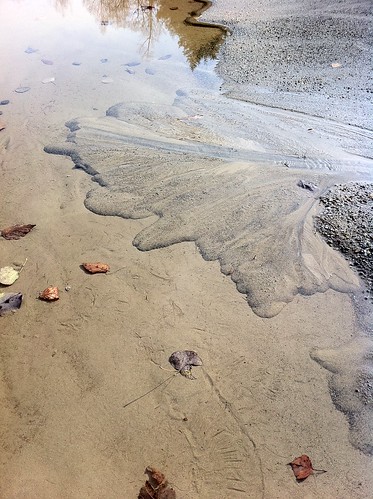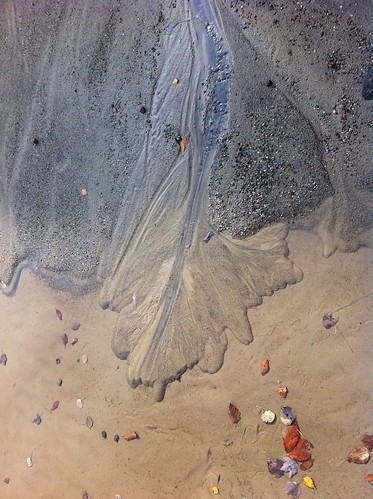Due to being very busy this will be a short post. There are, however, two neat things I wanted to share.
One of my favorite things about water is how scalable it is. A small trickle in sand will act much the same was as the Earth's largest rivers do. Yesterday I was exploring a gravel pit for a geology class (and learning about
eskers!) when I found this 'delta'.


It had many of the same features of a large river delta. By altering the flow of the little trickle of water (creating a dam and then breaking it), we were able to watch the delta experience high water events, and shift its channels. Then, I lowered the level of the 'lake' about an inch by using a shovel to drain the puddle. The water began cutting into the little delta and creating a new delta at the new water level. Soon, the entire geology class was involved. Unfortunately, as is usually the case when many humans are trying to modify the flow of water, by the time we left the little delta was mostly destroyed. Don't feel bad though because it rained last night and probably built itself back in that time.
Speaking of which... the rain last night in Vermont was quite mild. I hear that in Pittsburgh, there was a moderate storm, but nothing particularly intense. The large weather system responsible for this was anything but mild in other parts of the Midwest, however. According to
Jeff Masters' blog, this storm was the strongest on record in the interior United States in terms of barometric pressure (hurricanes and nor'easters can still be more intense than this storm was). It led to tornados, severe thunderstorms, and also winds near hurricane force on Lake Superior.
There have been an awful lot of intense storms lately, perhaps due to long-term changes in the climate, or perhaps due to other factors we don't understand. There are some indications that this winter could be quite a stormy one, and may be a winter of very heavy snowfall in many places. It's time to prepare for winter, as the squirrels are doing right now as well.




